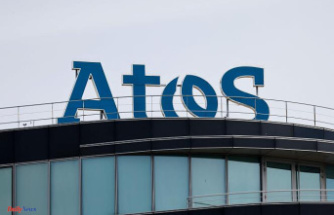The planned Chinese entry into a container terminal in the port of Hamburg is not only met with criticism in the traffic light coalition. If, in return, China promises that the Hanseatic city will become a preferred port, the question arises, according to the IfW: What if the participation is not approved?
According to the Kiel Institute for the World Economy (IfW Kiel), the offer by the Chinese company Cosco for a stake in the terminal puts the Port of Hamburg in a difficult position. "When Cosco says, 'You will become a preferred port if you accept the participation', one naturally has to ask the question: What if this participation is not approved?" Rolf Langhammer from IfW Kiel told NDR. "Would cargo then be taken from Hamburg to other North Sea ports - i.e. Rotterdam, Seebrücke or Antwerp?" This is the critical moment at this point. "Because the port of Hamburg is in a difficult situation."
The siltation problem and the problem of the Elbe deepening cannot be solved so easily for a tidal port, said Langhammer. "That means that Hamburg, as a competitor to Rotterdam and the other ports, has its back against the wall a bit." This offer from the Chinese comes almost like a threat or a threat. "According to the motto: If you don't do it, there will be negative consequences."
In 2021, the Hamburg port logistics company HHLA and the Chinese terminal operator Cosco Shipping Ports Limited reached an agreement on a 35 percent Chinese stake in the HHLA terminal in Tollerort in the Hanseatic city. Now there is a dispute in politics over the question of whether Chinese participation should be allowed. At the same time, the pressure on Chancellor Olaf Scholz is growing. Politicians from the traffic light parties as well as the opposition warned of a mistake.
Green politician Anton Hofreiter said it would be "a geostrategic mistake to sell parts of the port of Hamburg to China". Germany must not "repeat the mistakes in dealing with China that we have made with Russia over the past 20 years," said the chairman of the European Committee in the Bundestag to the newspapers of the Funke media group.
The Chinese government is now appealing to Germany to remain open. Since diplomatic relations were established 50 years ago, pragmatic cooperation and mutual benefit have always been the guiding principles, the Foreign Ministry said in a statement. Both countries would have participated intensively in the development of the other and benefited from it. China welcomes mutually beneficial projects, the broad statement said. Both China and Germany should adhere to openness and cooperation, to jointly promote the healthy and stable development of economic and trade cooperation.












